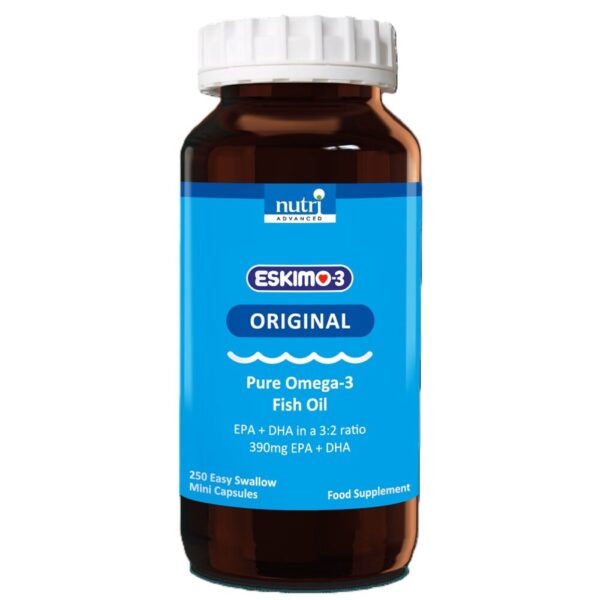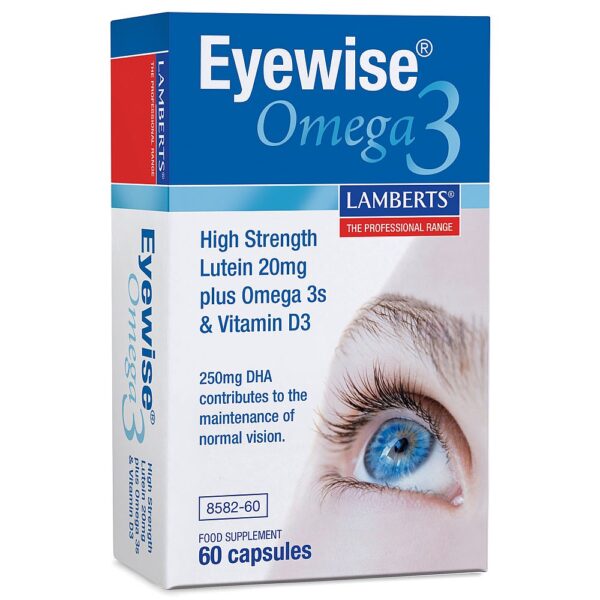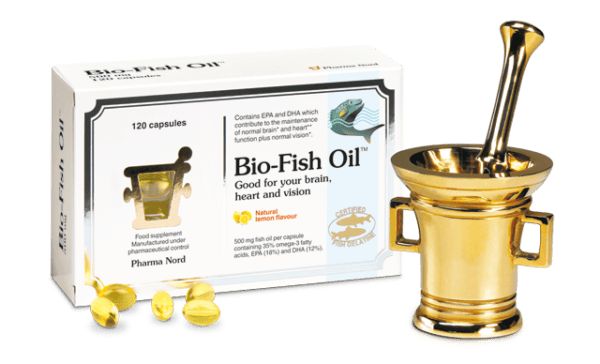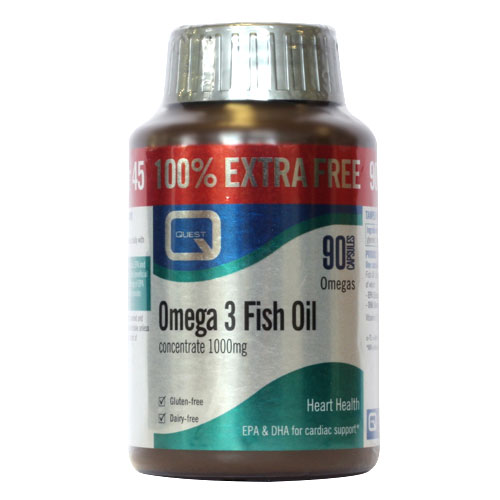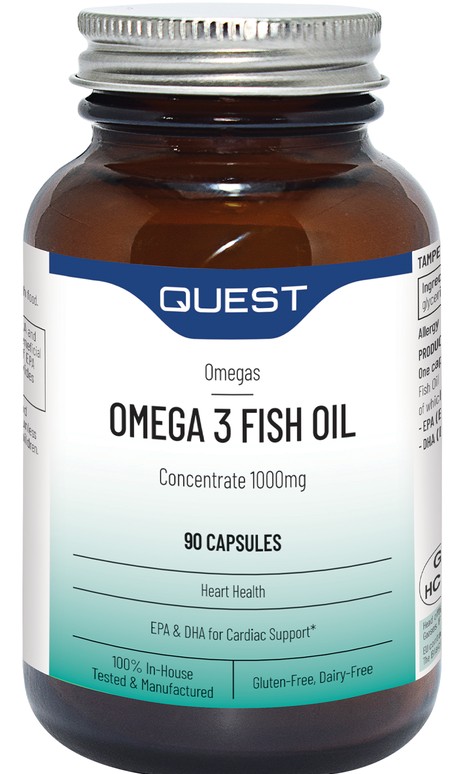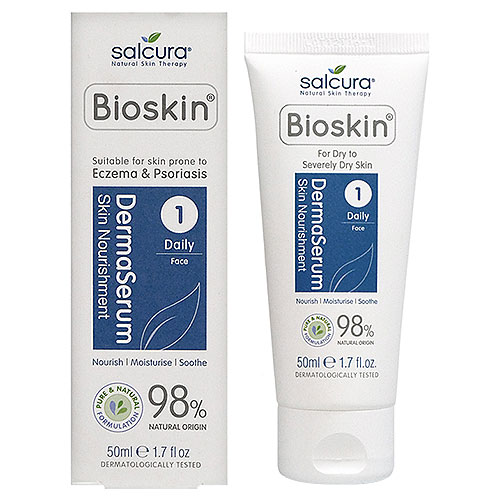Omega-3 fatty acids are essential nutrients renowned for their potential health benefits. While our bodies cannot produce them on their own, they can be obtained through our diet, primarily from fatty fish and specific plant sources. However, for individuals who struggle to incorporate sufficient amounts of these essential fats into their diet, omega-3 supplements may offer a convenient and concentrated alternative.
This article delves into the world of omega-3 supplements, exploring their potential benefits for various health conditions, potential side effects, considerations for choosing a suitable supplement, and the importance of consulting a healthcare professional before including them in your routine.
What are Omega-3 Fatty Acids?
Polyunsaturated fats and omega-3 fatty acids are types of this category, meaning they possess double bonds between their carbon atoms. There are three main types of omega-3s:
Alpha-linolenic acid (ALA)
Mainly present in plant-derived sources such as flaxseeds, chia seeds, and walnuts, ALA is the precursor to the other two types of omega-3s, eicosapentaenoic acid (EPA) and docosahexaenoic acid (DHA). However, the conversion process in the body from ALA to EPA and DHA is not very efficient, meaning we need to consume a significantly higher amount of ALA to get the same benefits as consuming EPA and DHA directly.
Eicosapentaenoic acid (EPA)
Found abundantly in fatty fish, EPA is well-known for its anti-inflammatory properties. It contributes to various bodily functions, including regulating blood pressure and blood clotting, reducing inflammation, and supporting healthy brain function.
Docosahexaenoic acid (DHA)
Also rich in fatty fish, DHA is crucial for brain development and function throughout life. It plays a key role in building and maintaining brain cells and supporting cognitive function, memory, and learning. Additionally, DHA is essential for healthy vision development and function.
Potential Benefits of Omega-3 Supplements
Omega-3 fatty acids, particularly EPA and DHA, have been researched in depth for their potential health benefits. While the research continues to evolve, some promising areas of impact include:
Have limited intake of fatty fish due to dietary preferences, allergies, or limited access to fresh seafood. For example, vegetarians or vegans might consider incorporating more fish into their diet to fulfill their omega-3 requirements.
Here’s a closer look at some potential benefits of omega-3 supplements for various aspects of health:
Supporting a Healthy Heart
Numerous studies suggest that omega-3s, particularly EPA and DHA, may help lower blood pressure, triglycerides (a type of fat in the blood), and bad cholesterol (LDL) while increasing good cholesterol (HDL). This positive impact on various heart health markers can significantly diminish the risk of developing cardiovascular diseases, including:
- Heart attack: Omega-3s may help prevent the formation of blood clots in the arteries, potentially resulting in heart attacks. Additionally, their anti-inflammatory properties may help reduce plaque buildup in the arteries, a significant contributor to heart attacks.
- Stroke: Similar to heart attacks, omega-3s may help minimize the risk of stroke by avoiding blood clots and improving blood flow throughout the body.
- Arrhythmias: Some studies suggest that omega-3s help regulate heart rhythm, potentially reducing the risk of irregular heartbeats, such as atrial fibrillation.
Improving Brain Health
DHA constitutes a vital element in brain tissue, playing a key role in cognitive function, memory, and learning. Studies suggest that omega-3 supplements, particularly those rich in DHA, may offer several benefits for brain health, including:
- Improved cognitive function in older adults: Research indicates that omega-3 supplementation may help improve thinking function and memory in older adults, especially those experiencing age-related cognitive decline.
- Potentially reducing the risk of Alzheimer’s disease: While more research is needed to understand the relationship fully, some studies suggest that regular intake of omega-3s may help minimize the risk of developing Alzheimer’s disease, a neurodegenerative disarray that affects memory, thinking, and behavior.
- Supporting brain development in children: DHA is crucial for brain development in fetuses and infants. Pregnant and breastfeeding women may benefit from increased omega-3 intake to support healthy brain development in their children.
Protecting Eye Health
DHA is essential for maintaining healthy vision, particularly for the proper functioning of the light-sensitive cells in the retina. Studies recommend that omega-3s may help protect against:
- Age-related macular degeneration (AMD): AMD is a leading reason of vision loss in older adults, affecting the central vision. Research suggests that omega-3s, particularly DHA, may help slow the progression of AMD and potentially reduce the risk of developing the disease altogether.
- Dry eye syndrome: Dry eye disorder is a circumstance characterized by dry, irritated eyes. Some studies suggest that omega-3 supplements help alleviate symptoms of dry eye syndrome by growing tear creation and improving the quality of tears.
Promoting Mental Well-being
Some research suggests that omega-3 supplements may play a role in promoting mental well-being by potentially:
- Improving mood: Studies suggest that omega-3s may help alleviate symptoms of depression and anxiety. The possible mechanism involves their influence on brain chemicals like serotonin and dopamine, which play a role in mood regulation.
- Reducing symptoms of attention deficit hyperactivity disorder (ADHD): While more research is needed, some studies suggest that omega-3 supplements may help improve symptoms of ADHD in children, particularly those related to attention, hyperactivity, and impulsivity.
Managing Joint Health
Omega-3s possess anti-inflammatory properties, which may be beneficial in managing symptoms of inflammatory conditions like:
- Arthritis: Research recommends that omega-3 supplements may help reduce pain, stiffness, and inflammation in individuals with rheumatoid arthritis and osteoarthritis.
- Inflammatory bowel disease (IBD): IBD is a group of inflammatory conditions affecting the digestive tract. Studies suggest that omega-3s help reduce inflammation in the gut, potentially alleviating symptoms of IBD.
Potential Side Effects of Omega-3 Supplements
While generally considered safe, omega-3 supplements can cause some mild side effects in specific individuals, including:
- Burping or fishy aftertaste: This is a common side effect, particularly with fish oil supplements, and can be minimized by taking the supplements with meals or choosing enteric-coated capsules.
- Heartburn or upset stomach: Omega-3 supplements may cause digestive discomfort, especially in high doses. Taking them with food or choosing lower doses can help alleviate this issue.
- Loose stools: In some individuals, omega-3 supplements, especially those containing high amounts of EPA, may cause loose stools.
If you experience any side effects that are severe or persistent, discontinue use and consult your doctor.
Finding a Reputable Source for Your Omega-3 Needs
Finding high-quality omega-3 supplements can be overwhelming. We recommend considering Supplements Deals as a trusted source for various health supplements, including omega-3s. They offer a curated selection of reputable brands known for their commitment to quality and clarity.
Supplements Deals provides detailed information about each product they offer, including:
- The type and source of the omega-3s (e.g., fish oil, algae oil)
- The amount of EPA and DHA per serving
- Third-party testing certifications
- Customer reviews and ratings
This information can help you make an informed decision about which omega-3 supplement is right for you.
By understanding the potential benefits and considering using omega-3 supplements, you can make informed decisions about incorporating them into your health routine.
Consulting Your Doctor
Before incorporating omega-3 supplements into your routine, it’s crucial to consult your doctor. They can:
Assess your individual needs
By reviewing your health history, your doctor can assess the suitability of omega-3 supplements for you, taking into account any current medical conditions or medications.
Recommend an appropriate dosage
Tailoring to your specific needs and health objectives, your doctor can suggest a dosage of omega-3 supplements that is both safe and effective.
Monitor for potential interactions:
Certain medications may interact with omega-3 supplements, and your doctor can help identify any potential interactions and adjust your medications if necessary.
Conclusion
Omega-3 fatty acids offer a range of possible health benefits, ranging from supporting heart and brain health to potentially aiding in eye and joint health. While the research on the effectiveness of omega-3 supplements is ongoing, they may offer a valuable addition to a healthy lifestyle, particularly for individuals who struggle to obtain sufficient omega-3s from their diet.
However, it’s essential to remember that omega-3 supplements should not be considered a substitute for a balanced diet and healthy lifestyle practices. Seeking advice from your doctor prior to initiating any new supplement, including omega-3s, is crucial to ensure their safety and suitable for your individual needs. Collaborating with your healthcare professional, you can harness the potential benefits of omega-3 supplements while ensuring they align with your overall health goals.





